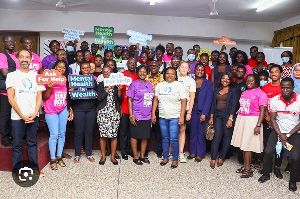Distinguished experts and thought leaders gathered at the maiden Made in Africa Leadership Conference (MLC) were all united in their consensus that Africa needs a new brand of leadership to realize its full potential and address the unique challenges and opportunities it faces.
At the event organised by BCA Leadership – a Pan-African CEO membership organisation – the diverse range of voices agreed that ineffective leadership has derailed development on the continent. Nevertheless, they expressed optimism that all hope is not lost, as they believe the challenges can be overcome through the emergence of a new generation of well-educated leaders – with a particular emphasis on women and young people.
They called for a concerted effort to create an enabling environment that nurtures and empowers leaders who are committed to serving the best interests of their communities and emphasized the importance of coaching programmes, leadership training, and platforms that facilitate dialogue and knowledge-sharing among aspiring leaders.
Board Chair of BCA Leadership, Charity Chanda Lumpa, highlighted the need for a paradigm shift in African leadership – saying the continent’s potential lies dormant, waiting to be unleashed by visionary leaders committed to transparency and inclusive governance.
“To unlock Africa’s potential, we must embrace a new brand of leadership that is rooted in accountability, transparency, and inclusive governance. Our leaders should prioritise the people’s needs and work toward building sustainable economies which benefit all citizens,” she asserted, adding that misconceptions about what makes a leader continue to perpetuate ineffective leadership – hence the need for adequate coaching.
Addressing the critical role of women in leadership, Madam Lumpa emphasised the untapped potential that lies within Africa’s female population; noting that full participation of women in leadership is not just about gender equality, but also recognising their invaluable contributions to holistic development.
“Women have long been at the forefront of driving positive change in African communities. Their participation in leadership positions is not just about achieving gender equality but also recognising their unique perspectives, skills and expertise, which can contribute significantly to inclusive development,” she noted.
This comes as a growing body of research expounds that enhancing women’s leadership opportunities and economic participation can also improve national economies, increase households’ living standards, enhance the well-being of children, and increase women’s agency and overall empowerment.
The conference also underscored the indispensable role of Africa’s youth in shaping the continent’s future. Dr. Modupe S. Taylor-Pearce, CTI Consulting Limited and a Board Member of BCA Leadership, stressed the importance of engaging and empowering young people to become active participants in governance and decision-making processes.
“Africa has one of the youngest populations in the world, and we must harness the energy, creativity and innovative thinking of our youth to drive sustainable development. Investing in quality education, skills development and meaningful youth participation in leadership will be key to unlocking Africa’s full potential,” he said.
Dr. Taylor-Pearce pointed out that delaying investment in leadership training until individuals reach an advanced age is counterproductive, as it is crucial to provide them with proper instruction at a younger age. “In other jurisdictions, there is an attempt to teach these things very early – and the fruit is there for all of us to see. We must be deliberate in our attempts as well,” he noted.
Already, more than 60 percent of Africa’s population is under the age of 25; and the United Nations estimates that by 2030 young Africans are expected to constitute 42 percent of global youth.
Founder and president of the Africa Centre for Economic Transformation (ACET), Dr. K.Y. Amoako, emphasised the need for a holistic approach to leadership that leverages the strengths and perspectives of all segments of society. “We must move away from the traditional top-down leadership models and embrace collaborative, participatory approaches that promote inclusivity and social cohesion. Only by harnessing the collective power of women, youth and diverse communities can Africa overcome its challenges and emerge as a global leader,” he urged.
Despite his disappointment in the failure of successive leaders to build upon the aspirations and actions of some of the founding fathers, he expressed optimism about the continent’s future: fuelled by the shared vision of a new brand of leadership that prioritises accountability, inclusivity and empowerment. “It is through this transformative leadership that Africa can unlock its immense potential and forge a prosperous future for all its people,” Dr. Amoako added.
Business News of Friday, 16 June 2023
Source: thebftonline.com

















